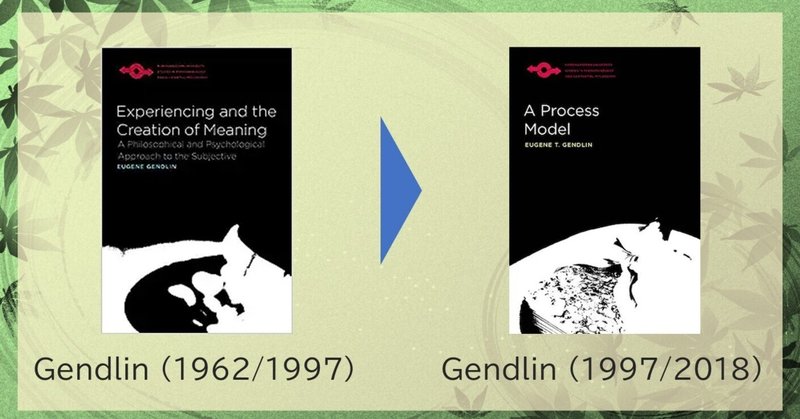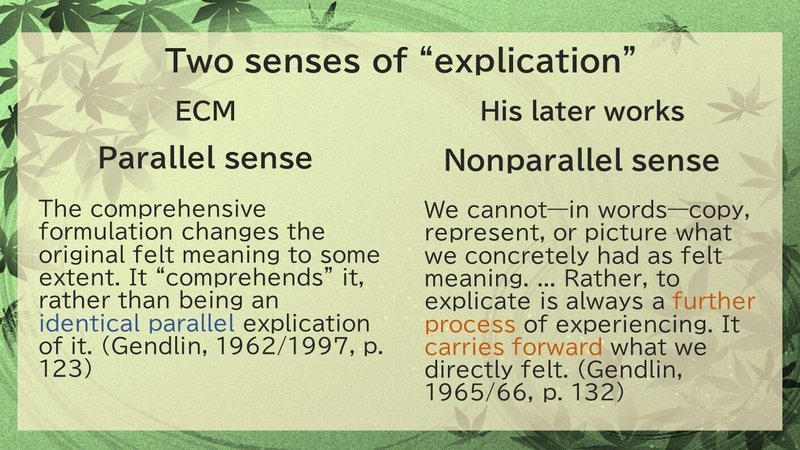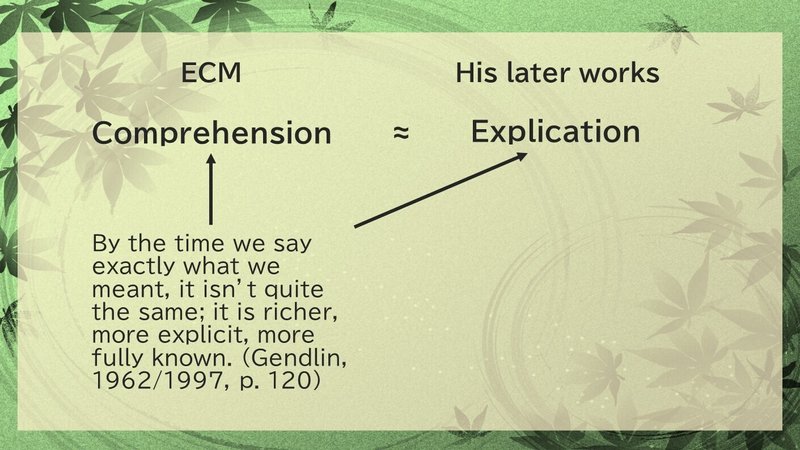
Gendlin's basic term, "explication": Q&A with Dr. Donata Schoeller
The best part of my study of Gendlin's philosophy in 2020 was participating in an online seminar presented by Donata Schoeller, Ph.D. in philosophy. Participating in the seminar helped me to better understand Gendlin's basic term, "explication."
The seminar was offered by the International Focusing Institute and is entitled "The Philosophical Roots of Focusing: An Introduction".
Her presentation itself was interesting, but I was very pleased with her sincerity in answering my questions during the Q&A session.
My question was about the term "explication" in Gendlin's philosophy. I have long thought that "explication" has a different meaning in Gendlin's early philosophical work, "Experiencing and the Creation of Meaning (ECM)" (Gendlin, 1962/1997), and in his later philosophical work, "A Process Model (APM)" (Gendlin, 1997/2018).
I posed the following question to her on the last day of the seminar:
In the Q & A time last week, you said that “explication” was a basic term in Gendlin’s philosophy. As you said, the term "explication" is used in the sense of “richer, more explicit, more fully known” in most of his works. On the other hand, in "Experiencing and the Creation of Meaning", Gendlin wrote as follows: “The comprehensive formulation changes the original felt meaning to some extent. It 'comprehends' it, rather than being an identical parallel explication of it” (Gendlin, 1962/1997, p. 123). It seems to me that the term explication in ECM doesn’t mean the creative role as “more fully known”. I consider that what corresponds to explication used in his later works may be comprehension, not explication as used in ECM. So, by all means, I would like to ask you whether my interpretation is right or not in this precious opportunity. That is my question."
While saying, "Well, I very much agree with you," she replied by adding the following:
"Explication" is a functional relationship (Gendlin, 1962/1997), and then it becomes a richer role. It becomes a huge role in "A Process Model" (Gendlin, 1997/2018). For example, "Law of explication" and etc. So if you want to re-translate it into ECM terms, you can do that "comprehension". But maybe, even comprehension is not enough. Maybe you need all functional relationships to work together. Your question inspires me that one could think in this way.
It was very fulfilling for me, as a seminar participant, to hear her answer to my sudden question, and then to elaborate on her own views.
P.S.
Note that this year I have summarized the transition in the implications of Gendlin's "explication". To conclude first, he used the term in a parallel sense only up to his very earliest writings, ECM, and then he used the term in a nonparallel sense for most of his activity as follows:


For more information, see the section 10 of my blog post below:
“Explication” in a non-parallel sense (Tanaka, 2023, April)
Acknowledgments
I would like to thank Takahiro Namiki for his English supervision.
References
Gendlin, E. T. (1962/1997). Experiencing and the creation of meaning: a philosophical and psychological approach to the subjective (Paper ed.). Northwestern University Press.
Gendlin, E.T. (1965/66). Experiential explication and truth. Journal of Existentialism, 6, 131-146.
Gendlin, E. T. (1997/2018). A process model. Northwestern University Press.
Tanaka, H. (2023, April). Anthology: Dilthey as a Precursor of Gendlin.
この記事が気に入ったらサポートをしてみませんか?
